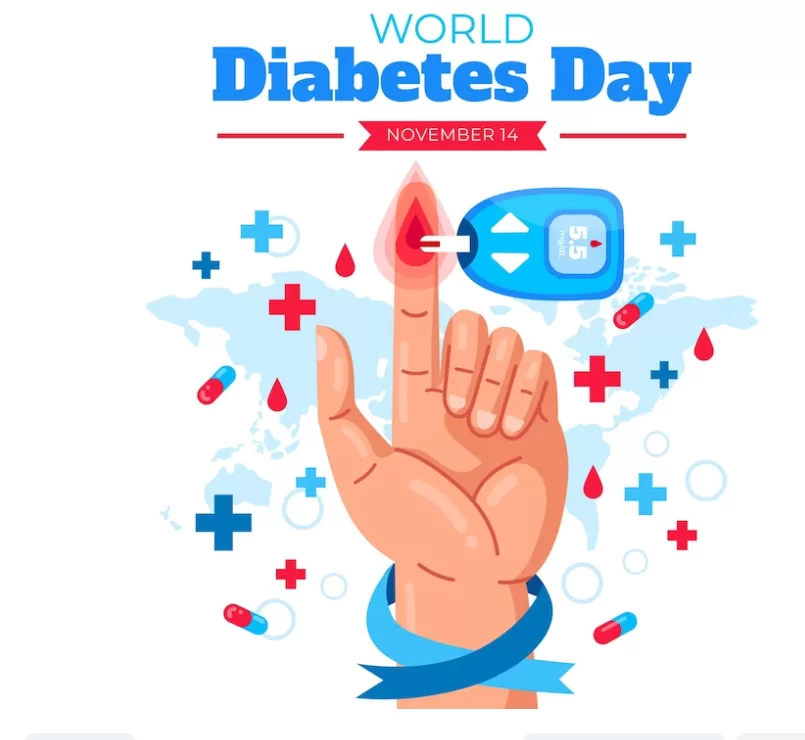
Diabetes
Diabetes is a chronic medical condition that affects the body's ability to regulate blood sugar levels. It occurs when the pancreas either does not produce enough insulin hormone or when our body cannot use the insulin effectively. Insulin hormone helps in regulating blood sugar. Diabetes occurs when there is a problem with the hormone insulin, which is responsible for regulating blood sugar levels. Insulin hormone is produced by the pancreas and helps in the transportation of glucose from the bloodstream into cells, where it can be used as a source of energy. When there is not enough insulin in our body, the blood sugar stays in our bloodstream in the form of sugar.
Type 1 Diabetes (Genetic)
Type 1 diabetes is a chronic autoimmune disease characterized by the body's inability to produce insulin. The immune system mistakenly attacks and destroys the insulin-producing beta cells in the pancreas, leading to an absolute deficiency of insulin in the body. This causes blood glucose levels to rise to dangerous levels, resulting in hyperglycemia (high blood sugar).
Type 1 diabetes requires continuous blood glucose monitoring and insulin therapy to manage blood sugar levels.
Lifestyle management, including a healthy diet and regular exercise, is essential to prevent complications.
Type 2 Diabetes
Type 2 diabetes is the most common form of diabetes and usually develops in adulthood, but it can also occur in children and adolescents. In type 2 diabetes, the body becomes insulin resistant, meaning that insulin is present but not utilized effectively by the body cells.
Type 2 diabetes can be managed or reversed through lifestyle changes, including a healthy diet and regular exercise.
Diabetes that occurs during pregnancy is known as gestational diabetes. It develops due to hormonal changes and the body's response to insulin during pregnancy. Proper management of gestational diabetes is crucial to avoid complications for both the mother and the baby.
Risk factors include being overweight or obese
Family history of diabetes
Being older
PCOS Problem
History of gestational diabetes in a previous pregnancy.
Screening of Gestational Diabetes Mellitus (GDM)
Screening for GDM involves a glucose challenge test under the supervision of doctors.
By proper management and lifestyle modifications, people with diabetes can lead healthy, happy, joyful, and fulfilling lives.
Elevate Your Fitness: The Crucial Role of Exercise Physical fitness is a state of health… Read More
Stress - Causes, Symptoms, Risk Factors And Techniques to Manage stress Stress is a normal… Read More
The Complete Guide to Effective Diabetes Management through Nutrition: Mastering the Diabetic Diet A balanced… Read More
How to use technology in health and wellness, Demand of technology in wellness and it's… Read More
Sarcopenia meaning, muscle loss with age and it's treatment What is Sarcopenia? Sarcopenia is… Read More
Blood Pressure: Blood pressure is the force of your blood pushing against the walls of… Read More